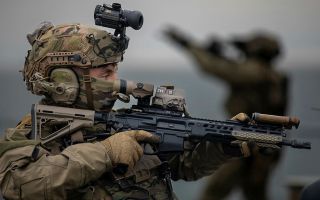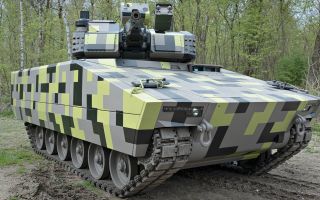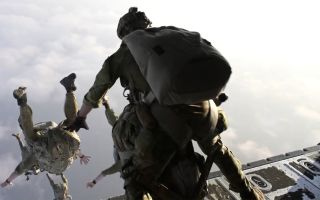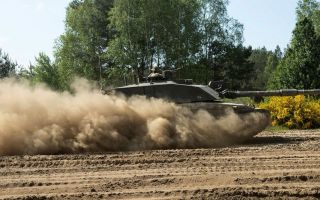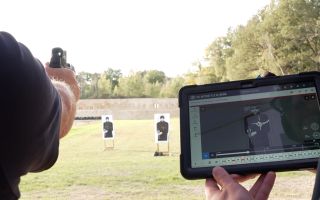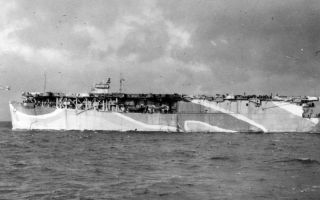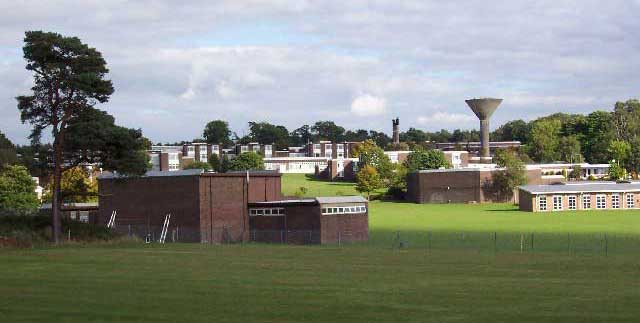
Army
Deepcut: Army’s Sexualised Culture "Change Will Not Happen Overnight"

Changing a British Army culture that includes problems with harassment and overly sexualised behaviour is likely to take a number of years, an inquest into the death of a recruit at Deepcut Barracks has heard.
There must be a cultural shift, a senior military witness said, but it will not happen overnight.
Appearing for the second time at the inquest into the death of Private Cheryl James, Brigadier John Donnelly, Head of Army Personal Services, said there are a number of aspects of British Army culture that can lead to "inappropriate behaviour".
The results of a survey of 24,000 servicemen and women two years ago found the majority of those who responded thought the British Army had an overly sexualised culture - a figure Brigadier Donnelly agreed had been a "wake-up call".
Changing the culture will take "a few years", Brigadier Donnelly told the hearing which is in its third month, adding:
"Cultural change will not happen overnight."
Private Cheryl James was found dead with a bullet wound to the head on 27th November 1995, while she was on guard duty at Deepcut Barracks.
When he appeared at the inquest at Woking Coroner's Court in February, Brigadier Donnelly accepted there was a ''highly sexualised atmosphere'' at the barracks and an ''abuse and misuse'' of power, conceding it could be a ''morally chaotic environment'' for a teenage woman, that the pressure could be ''intolerable'' and that the British Army ''did not have the structures in place to provide a proper duty of care".
The inquest has also previously heard that Private James was the subject of unwanted sexual conduct during her time in the British Army.
Brigadier Donnelly said a number of changes have been made throughout the British Army as a direct result of the death of Private James and three other recruits who died at the barracks between 1995 and 2002.
Private Sean Benton died in June 1995, aged 20. Private Geoff Gray was 17 when he was found dead in September 2001. Private James Collinson, also 17, was found dead in March 2002. All four recruits died from gunshot wounds.
The changes include a confidential support line, a female focus officer attached to each unit to provide advice and better awareness of how to make complaints. Brigadier Donnelly said:
"We recognise that a number of changes have taken place since 1995. We got some things wrong and we took too long to recognise that and I have apologised to Mr James (Private James's father)."
Questioned by Alison Foster QC, representing the family, Brigadier Donnelly admitted he is "troubled" by figures from the 2014 survey suggesting a number of serving soldiers still do not have faith in their own complaints system.
Ms Foster suggested the British Army had done work to ensure policy and guidelines are clear for those serving, but that there must be a change in culture, which Brigadier Donnelly accepted.
In a wider context he spoke of other changes including a policy at Deepcut Barracks specifically where no trainees are expected to undertake guard duty, as Private James had been doing at the time of her death.
Having considered a number of reviews following her death, the British Army concluded that trainees may not be "ready" for the job. He told the inquest:
"We recognise that trainees in large part were not ready to take on guard duty."
While some trainees may undertake guard duties in emergency circumstances at other barracks, Deepcut has a local policy that recruits do not.
In an emergency situation "trained manpower would be found to fill the gap", Brigadier Donnelly said.
"Supervising ratios are also "vastly different" to those when Private James was there", he added.
In 1995 there was often just one corporal in charge of 200 trainees, but one WO2 who served at the barracks between 1995 and 1998 said that at one stage, out of hours, he saw just one NCO (non-commissioned officer) in charge of 300-400 recruits.
Figures for the barracks this week show there are 24 military staff instructors, four of whom are female, in charge of 204 trainees.
In relation to the disciplinary process for soldiers, Brigadier Donnelly said there is a "formal process" for sanctions to ensure they are "appropriate". He said:
"There is no place in the Army for unauthorised discipline of soldiers."
Brigadier Donnelly added that rates of suicide in the British Army, which he said were "certainly a problem in 1995", are now lower than society in general, and the screening process for those joining the British Army is "more robust" in mental health assessments.
An MOD spokesperson, meanwhile, said:
"Our thoughts remain with the family and friends of Private Cheryl James. The inquest is now a matter for the Coroner; we have cooperated fully with his direction throughout this process and will continue to do so."
Picture: Ron Strutt

